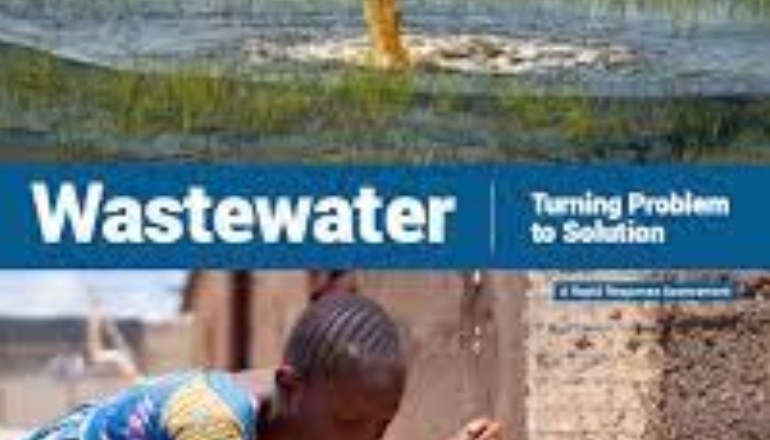Wastewater poses significant health and environmental threats.
UNEP, Global Wastewater Initiative (GWWI), and GRID-Arendal analysis shows wastewater could provide alternative energy, supply 10 times more water than current desalination capacity, and offset 10% of global fertilizer use.
Titled: Wastewater. Turning Problem to Solution, the report advocates treating wastewater as a circular economy opportunity, generating new jobs, revenue streams, and reducing production volume for increased economic benefits. It aims to inspire policymakers to lead transformational change in sustainable wastewater management, closing water cycles, and reusing recovered resources.
The global water crisis is worsened by wastewater from various sources, causing ecosystem degradation, food insecurity, and social issues.
The authors observe that today, only 11 per cent of the world’s treated wastewater is reused and around half of the world’s untreated wastewater still enters rivers, lakes, and seas.
Wastewater contributes to 1.57 per cent of global emissions, releasing greenhouse gases like methane and nitrous oxide. However, it can be a climate solution by producing biogas, heat, and electricity, providing electricity for half a billion people annually and supporting countries’ adaptation to climate change.
Reusing wastewater can reduce synthetic fertilizer dependence and irrigate 40 million hectares, offsetting 13.4% of global agricultural nutrient demand, the report says.
Wastewater can provide valuable resources for industries like paper, polymers, pesticides, rubber, paint, biodiesel, food preservatives, and medical products. Improved water management and reuse are complex challenges, but successful solutions can be adapted for different socio-environmental contexts. Examples from high- and low-income countries like Caribbean, China, Colombia, Denmark, Egypt, Germany, India, Israel, Namibia, Senegal, Sweden, Singapore, the Solomon Islands and Tunisia showcase successful solutions.
The report recommends reducing wastewater volume, preventing contamination, and managing resources for safe reuse.
“Globally, wastewater is full of potential, yet it is currently allowed instead to contaminate the ecosystems we rely on,” says Leticia Carvalho, Principal Coordinator, Marine and Freshwater Branch, UNEP. “We must not let the opportunity simply disappear down the drain: it’s time to realize the promise of wastewater as an alternative source of clean water, energy, and important nutrients.”
Peter Harris, Director of GRID-Arendal, adds, “… For that to happen, we need more effective governance, investment, supporting innovation, strengthening data, improving capacity to implement and – critically shifting our behaviour – all of us as individuals and institutions.”

